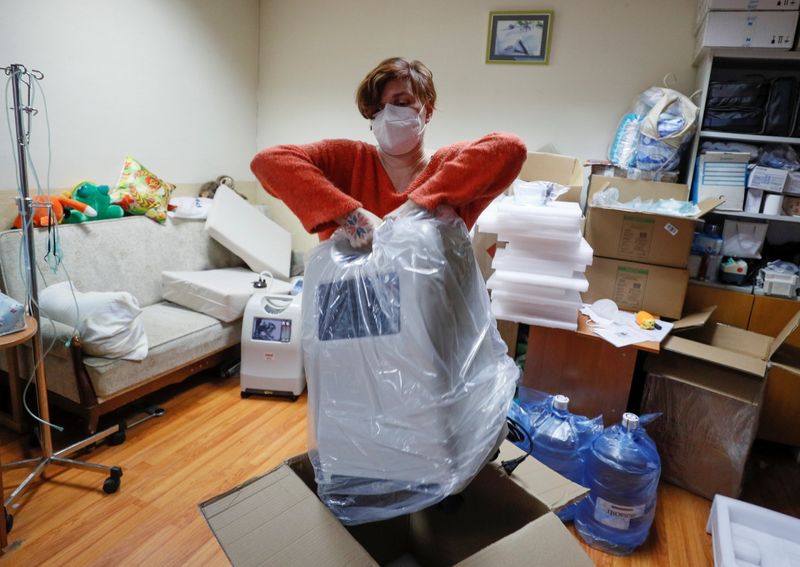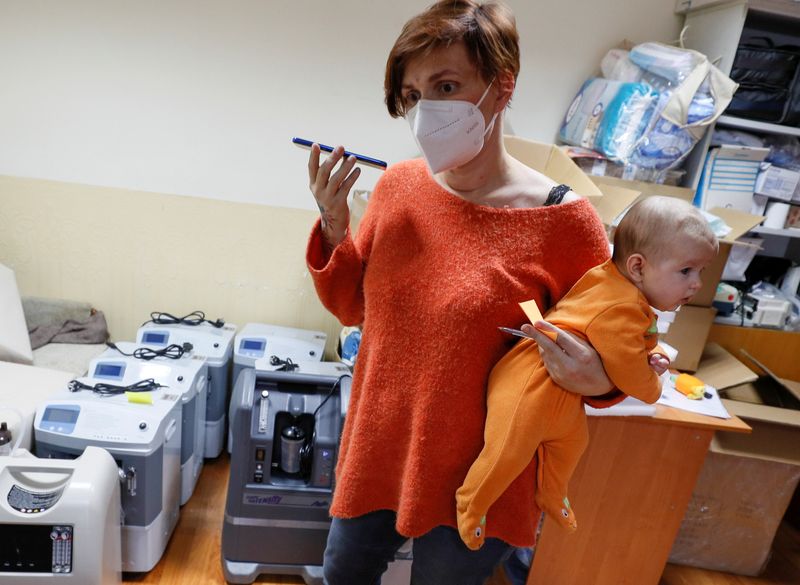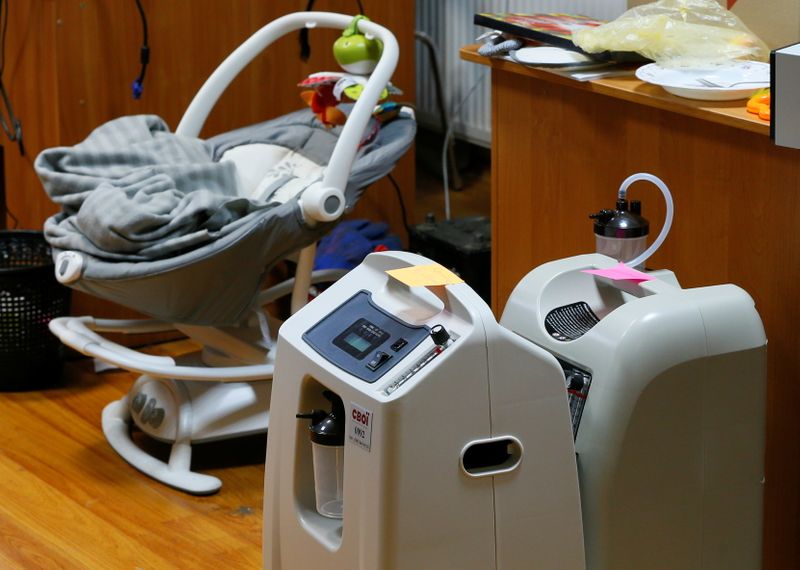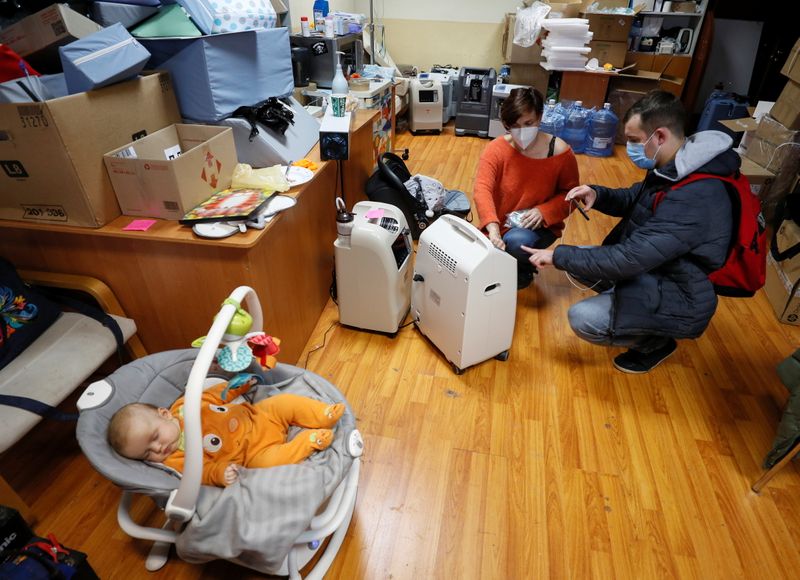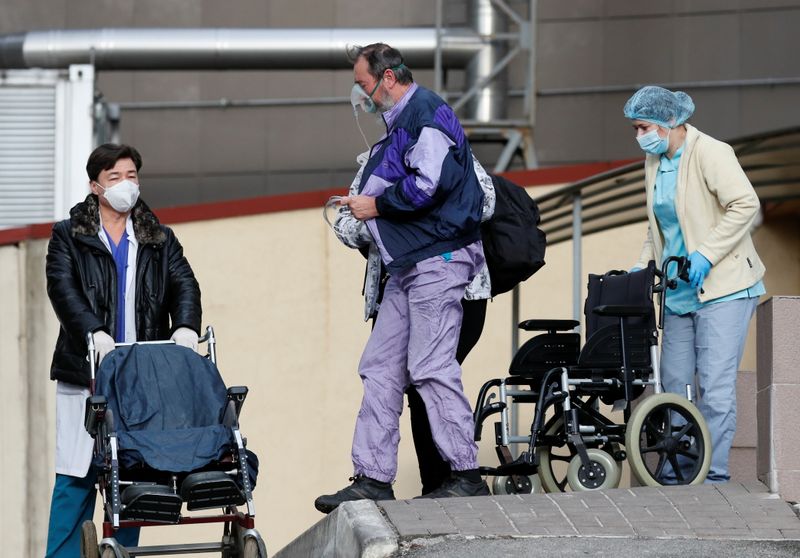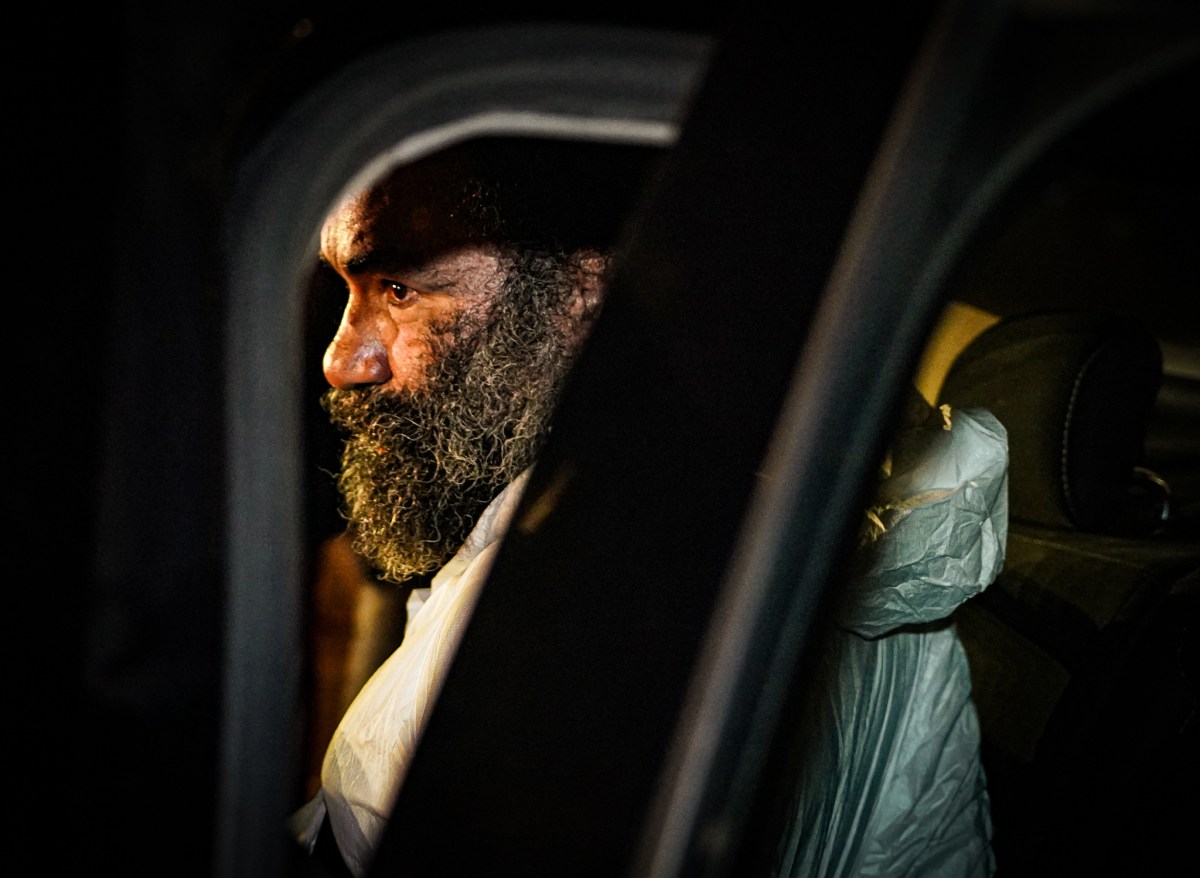KYIV (Reuters) – Lesya Lytvynova’s phone never stops ringing. With one hand she soothes her three-month-old baby, with the other she answers calls from relatives of coronavirus patients desperate to get an oxygen generator.
Lytvynova runs a Kyiv-based charity called ‘Ours’ that gives free generators to patients suffering respiratory distress, plugging a shortage in Ukraine’s healthcare system as COVID-19 cases spike to record levels.
The portable devices provide oxygen through a mask or nasal tubes.
For Olga Sabatiye, whose mother Halyna Panasiuk has coronavirus, it is the only hope. Neither of the two hospitals in Bila Tserkva, 85 km (53 miles) from the capital, had a spare bed for the 57-year-old.
“Mother is suffocating and crying … She says: ‘I try to breathe in and can’t.’ I don’t know what to do. I want to help her, but can’t,” Sabatiye told Reuters, in tears, while collecting the generator from Lytvynova’s office.
Lytvynova said most who contacted her were either not able to secure a hospital bed or felt they had been discharged prematurely with low oxygen saturation levels in their blood.
“It became clear that the authorities, as usual, live separately from the people and that they do not plan to do anything to get out of this situation,” said Lytvynova, a 44-year-old former documentary filmmaker.
“It is the way it was in 2014. We have to rescue ourselves by our own means.”
In 2014, volunteers gave donations and supplies to Ukraine’s poorly equipped army fighting Russian-backed forces in the eastern Donbass region.
The fund owned fifty oxygen generators before the pandemic hit. It has almost 150 now, bought through crowdfunding.
Ukraine’s coronavirus cases spiked to a record 16,294 on Saturday. According to the health ministry, 26,583 out of 55,886 beds for COVID-19 patients have access to medical oxygen.
“We are re-building the whole healthcare system from scratch. There were 3,500 beds with access to oxygen in April,” Health Minister Maksym Stepanov told Reuters.
“It was a result of attitudes to the healthcare system. Now we have eight times more and understand the demand.”
Stepanov said the government allocated around 895 million hryvnia ($31 million) in addition to 572 million provided in October to ensure 80% of beds had oxygen.
Lytvynova called those commitments “smoke and mirrors”.
“Even if the allocated amount of money were four to five times bigger, there would be no place to get oxygen quickly,” she said.
(Additional reporting by Ilya Zhegulev; editing by Matthias Williams and Mike Collett-White)

